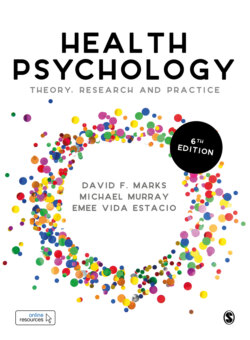Читать книгу Health Psychology - Michael Murray - Страница 9
На сайте Литреса книга снята с продажи.
The Biopsychosocial Model
ОглавлениеThe dominance of the biomedical system has been challenged by figures in the scientific establishment and by certain patient groups. These challenges are reflected in a call for more attention to the psychological and social aspects of health and, in particular, in the so-called ‘biopsychosocial model’ (BPSM) proposed by Engel (1977, 1980). According to Engel (1980) all natural phenomena can be organized into a hierarchy of systems ranging from the biosphere at one end of the hierarchy, to society and the individual level of experience and behaviour towards the middle, and then to the cellular and subatomic levels at the other end of the hierarchy. These different levels need to be considered if we are to fully understand health and illness. The BPSM has become the conceptual status quo of contemporary psychiatry (Ghaemi, 2009) and a banner for health psychology. Yet it is far from being established as a paradigm in medicine and health care where the biomedical model remains resiliently in force.
Long before Engel, William Osler (1849–1919) had stated: ‘The good physician treats the disease; the great physician treats the patient who has the disease.’ He also stated: ‘Listen to your patient, he is telling you the diagnosis.’ The traditional biomedical model remains the core of medical education, although there may have been a slight shift in the thinking of doctors in primary care and in liaison psychiatry towards a more holistic, BPS view of the patient (see Chapter 1). The BPSM remains a fertile idea for a transformed biomedical model by including the psychological and social aspects of illness along with the biological aspects. The BPSM has been influential, for example, in providing an account of the influence of racism on health outcomes (Clark et al., 1999) and in understanding adolescent conduct problems (Dodge and Pettit, 2003).
However, the BPSM has not been free of controversy – for example, when it has been extended as a cognitive behavioural theory of illness such as myalgic encephalomyelitis (ME) or chronic fatigue syndrome (CFS) by asserting that cognitions and behaviours perpetuate the fatigue and impairment in individuals suffering from the condition(s) (Wessely et al., 1991; Chapter 23). In psychiatry Engel’s BPSM became associated with a particular socio-cognitive model for illness experience. We argue that the socio-cognitive formulation has tended to constrain theorizing within health psychology (Chapter 8) and narrowed thinking about clinical conditions and stigma to the presumption of incorrect beliefs and attitudes (Chapter 22). It is important to distance Engel’s generic BPSM as a schematic approach to health care from specific formulations of the socio-cognitive model. In truth, there is a multitude of biopsychosocial theories and models that should not be lumped together under a single umbrella, because the devil is in the detail. The adoption of the BPSM by general practitioners can meet with resistance or even hostility by patients, either because they feel more comfortable with the traditional ‘doctor knows best’ model of biomedicine or because they deem the BPSM is not a good fit for their illness (e.g., myalgic encephalomyelitis/chronic fatigue syndrome (ME/CFS)).
Seventy years ago the World Health Organization (WHO) proposed a definition of health as: ‘a state of complete physical, mental and social well-being, not the mere absence of disease or infirmity’. This definition widened the scope of health care to consider well-being more holistically. The WHO definition has not been revised since its original publication in 1948. In Chapter 1 we suggest a wider definition, encompassing the economic, political and spiritual domains of daily living for these are also contributing conditions of well-being. Currently, some areas of health care are shifting from a concern with purely bodily processes to an awareness of broader concepts of quality of life and subjective well-being.
Another recent trend has been an ideological emphasis on patient choice and individual responsibility for health. Crawford (1980: 365) argued that ‘in an increasingly “healthist” culture, healthy behaviour has become a moral duty and illness an individual moral failing’.
